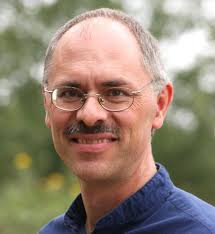 Andre Gingerich Stoner is director of Holistic Witness for Mennonite Church USA.
Andre Gingerich Stoner is director of Holistic Witness for Mennonite Church USA.
What is the role of the church in society and the world? The teaching and writing of Alan Hirsch has been some of the most stimulating and challenging that I’ve encountered in the past years. Some Mennonites will be very familiar with Alan, for others he will be a totally new face.
At KC2015, Alan will address the delegates, and Alan and his wife Deb, will lead seminars and an open conversation with church planters one evening.
Everything starts with Jesus. While many churches turn Jesus into a “decency cop” who enforces polite cultural norms, Alan insists that claiming Jesus as Lord is a radical commitment to the kingdom of God. When the church is living into its calling it is a kingdom-of-God-movement where peace, justice, forgiveness and personal transformation are all part of an interwoven fabric of good news.
Coming from Australia, Alan did not need to unlearn the cozy alliance between American nationalist consumer culture and the church. Alan sees the post-Christendom reality as a blessing, and an opportunity for the church to be salt and light.
I’ve been challenged by Hirsch to see that much of our church life is oriented to an attractional paradigm rather than an incarnational one.
Church becomes an activity led by special people that happens in a special building at a special time. If the church thinks about its neighbors, the goal often becomes getting more people to walk through the doors. Jesus, however, spent more time eating meals with people in their houses than he did trying to get them to come to church. The word became flesh and dwelt among them.
The incarnational church is not a building but a Jesus-centered community.
Church happens around supper tables, in living rooms, on street corners – and in larger gathering places – wherever people encounter the living Christ and pledge their allegiance to him.
Hirsch has also stretched me to think about the kind of leadership the church needs as it seeks to be the body of Christ in the world. Traditional Christendom churches have tended to highlight two of the leadership roles described in the New Testament: the roles of shepherd/pastor and teacher/preacher. By and large, however, we have not found ways to affirm or train for other New Testament leadership roles: apostles/sent ones, prophets and evangelists. These are the people who look outside the four walls, imagine new possibilities, see the world as it is with a deep yearning for the world as it should be, who imagine new partnerships, are willing to take risks, who see good news and bring good news in places others have abandoned or avoided.
There is much to encourage and to challenge us here. I look forward to engaging with Alan at KC2015 and hope you take the chance to do so as well.


